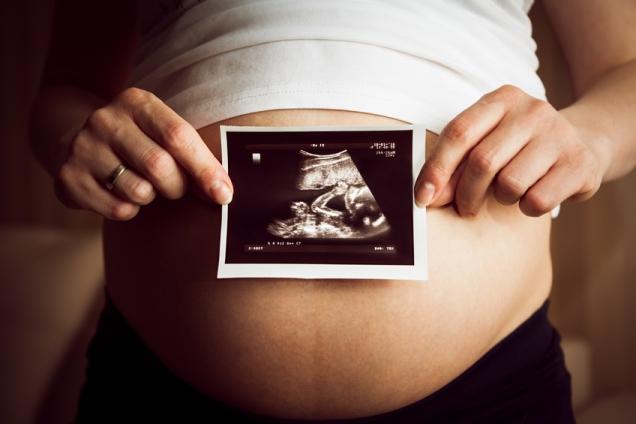Stepping up the level of detail in its reporting on Zika infections in pregnant women, the US Centers for Disease Control and Prevention (CDC) today started announcing poor birth outcomes from US states, noting six instances of birth defects—three involving live births.
In a related development, a Spanish team today reported the details of a congenital Zika infection in the fetus of a woman who had been infected with the virus in Venezuela.
Three live births among 6 poor outcomes
The CDC has been gradually ramping up the information it shares on Zika infections in pregnant women.
On May 20 it announced a change in the way it reports the number of Zika infections in pregnant women to include those with lab-confirmed asymptomatic illnesses, which it said provides a more complete picture of the impact of the disease on pregnant women. At the time, CDC officials said they held off on reporting birth defect numbers because of incomplete details and privacy concerns.
The numbers it released today, based on information as of Jun 9, are from one of the CDC's two Zika pregnancy registries: the one that pertains to women in US states and the District of Colombia, which reflects travel-related cases. The CDC added that in the coming weeks it will report poor pregnancy outcomes from the second registry, the one that tracks Zika infections in US territories.
So far three US infants have been born live with Zika related birth defects, a group of conditions that include microcephaly, other brain abnormalities, eye problems, and a host of nerve, muscle, and joint issues. Three women infected with Zika virus have had pregnancy losses—miscarriages, stillbirths, and abortions—with birth defects.
The cases are from 234 US women who have had any lab evidence of possible Zika virus infection as of Jun 9. During the same timeframe, 189 infections in pregnant women have been reported from the US territories, according to a CDC update yesterday.
Officials declined to break down the poor pregnancy outcomes by state due to privacy issues, but some details about some cases are already known, such as severe microcephaly in a baby born to a Hawaiian woman who had spent time in Brazil and a baby born recently to a Honduran woman in a New Jersey hospital.
In February, the CDC published a report on a range of outcomes in nine pregnant travelers from the United States who had lab-confirmed Zika infections. Two women had miscarried in their first trimester, two women had abortions, two pregnancies were continuing without any known complications, and, of three live births, only one had microcephaly—presumably the baby born in Hawaii.
In today's case update, the CDC included a caveat: Though the poor outcomes occurred alongside lab evidence of Zika infection, it's not known whether the defects were caused by Zika virus or other factors.
Congenital Zika case in Spain
The report on the Zika-related congenital malformations detected in Spain was published today in the latest edition of Eurosurveillance. The authors said the problems were found when the woman in her 20s visiting from Venezuela was admitted to a hospital in March for routine follow-up when she was 17 weeks pregnant.
The patients said she had experienced a rash in January, and an ultrasound at 12 weeks gestation was normal.
Exploring the possibility of Zika virus infection, Spanish clinicians confirmed recent Zika virus infection on serology and molecular tests. Ultrasound done at 19 weeks showed fetal hydrocephalus and extensive muscle and joint problems. Tests on amniotic fluid detected Zika RNA, but ruled out other infections.
Due to severe malformations and brain problems in the fetus, the woman had an abortion at 21 weeks gestation. Autopsy confirmed the musculoskeletal defects and hydrocephalus but ruled out microcephaly. Tests confirmed Zika virus in samples from the umbilical cord and brain tissue, but not the placenta.
Other developments
- In its weekly Zika situation report today, the World Health Organization (WHO) said one more country—El Salvador—has reported a Zika-linked microcephaly case, raising the number reporting such birth defects to 12. The WHO said it still doesn't see an overall decline in the outbreak, though cases have dropped in some countries or parts of countries. So far its risk assessment hasn't changed.
- In an update today. the CDC reported more local Zika infections in US territories and more travel-related cases in US states. Affected territories reported 135 more illnesses last week, raising the total number of local cases to 1,436. One fewer related Guillain-Barre syndrome (GBS) was reported in the territories, dropping that number to 6. In US states, 64 more travel-related Zika cases were reported, along with the recent lab-acquired case in Pennsylvania, putting the overall total at 756. The number of sexually transmitted Zika cases remained the same, at 11, and 1 more GBS cases was reported in US states, lifting that total to 3.
See also:
Jun 16 CDC media statement
CDC Zika pregnancy outcome page
May 20 CIDRAP News story "Reporting change, rising cases vault US Zika pregnancy cases to 279"
Jun 16 Eurosurveill report





















